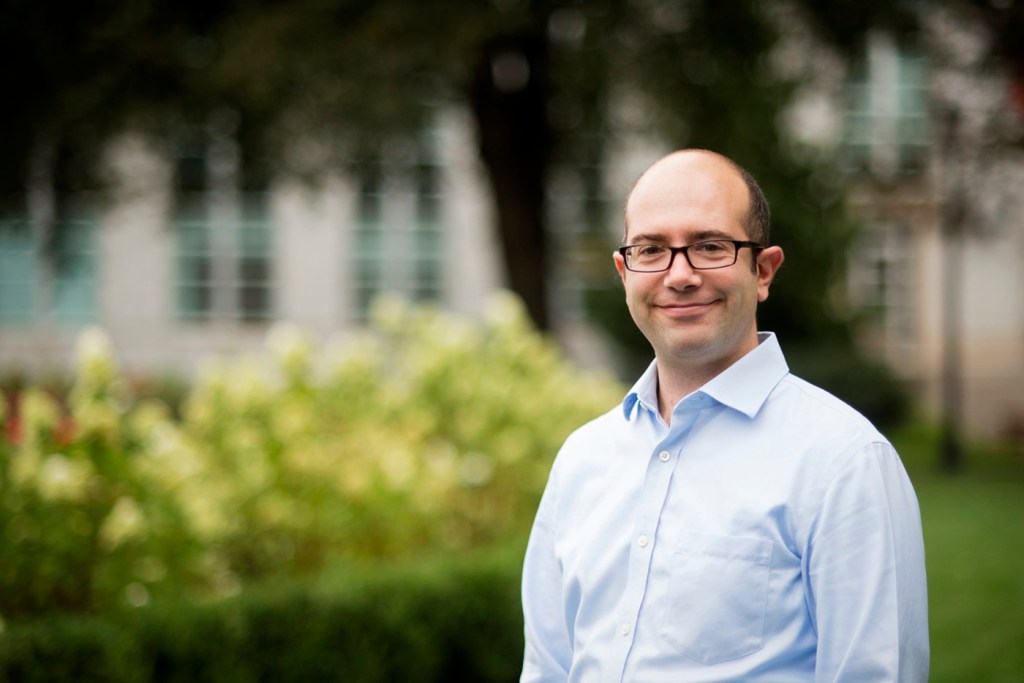New professor works to protect digital privacy

Stratis Ioannidis, a new assistant professor of electrical and computer engineering, says that Northeastern is the perfect place for him to delve deeper into his study of Big Data and digital privacy.
As he puts it, “Northeastern is a world-class university with a tremendous trajectory. It’s a wonderful institution where faculty can make a significant impact.”
Ioannidis, for his part, wants to build the world’s best targeted mobile advertising system, a platform that presents highly relevant ads to consumers while simultaneously protecting their privacy.
The ambitious project will build on his previous work as a research scientist at two prestigious tech companies in California—Yahoo! Labs, the “scientific engine” guiding the firm’s innovation, and Technicolor, a worldwide leader in the media and entertainment sector.
In both positions, Ioannidis focused on behavioral data mining, the controversial computer-assisted process that allows companies to personalize Web content and predict the personal attributes of their unwitting customers. He was particularly interested in studying the predictive powers of seemingly innocuous digital behavior.
“Oftentimes people think that their online activity does not reveal anything about them,” Ioannidis explains. “But we’ve found that online behavior—the websites you visit, for example, or the social media posts you like and the movies you take an interest in—can be used to predict your age, gender, political affiliation, and many other traits.”
He says he looks forward to tackling the privacy-personalization conundrum from an interdisciplinary perspective at Northeastern, where he’ll have the opportunity to work with experts in fields ranging from machine learning to biomedical engineering.
“Privacy is pertinent to the medical domain as well,” Ioannidis says, “and that’s something I’d very much like to explore.”





